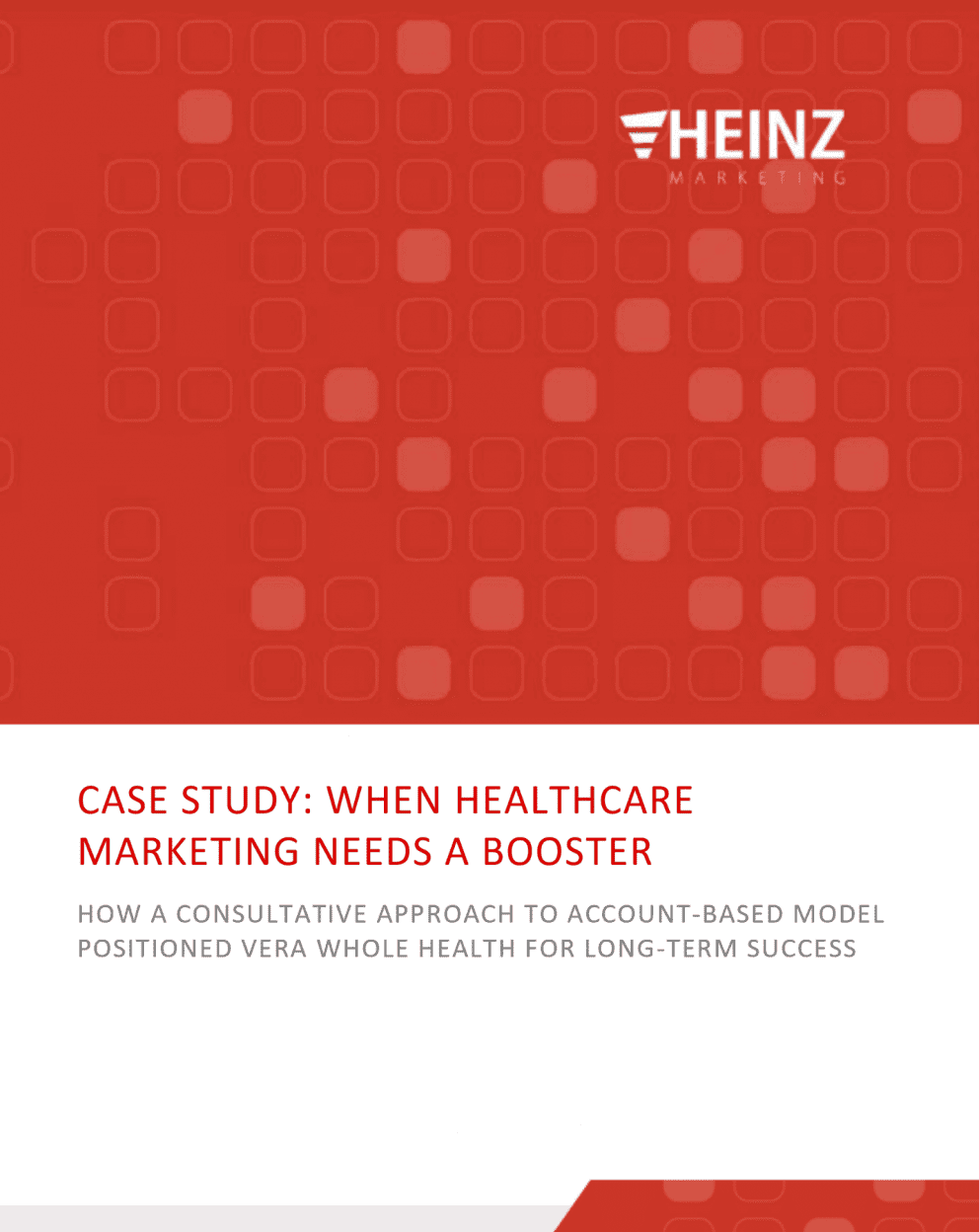How Healthcare Marketers Can Prove Their Business Impact

Summary
The blog discusses the unique challenges faced by marketing teams in the healthcare industry due to heavy regulations and rapid evolution. It emphasizes the importance of staying agile and adaptable while providing practical strategies such as keeping up with changing regulations, leveraging new tools and technology, prioritizing personalized experiences, and building strong partnerships to demonstrate their business impact and drive better results for healthcare companies.
By Cameron Katoozi, Marketing Consultant at Heinz Marketing
Marketing teams in the healthcare industry face a unique set of challenges. The industry is heavily regulated, making it difficult to market products and services in traditional formats that other industries follow. On the other hand, the healthcare industry is rapidly evolving, and marketing teams are facing increasing pressure to demonstrate their business impact in this dynamic space. As the industry continues to grow and evolve, it’s becoming increasingly important for healthcare marketers to be agile and quick to adapt to changes in the industry.
However, despite these challenges, marketing teams in the healthcare industry can prove their business impact in several ways. We’ll dive into some ways marketing teams can be more adaptable in the healthcare industry, and how this can help them demonstrate their business impact.
Keep Up With Changing Regulations
The Healthcare industry is heavily regulated and constantly changing and marketers must be able to stay up to date. This includes understanding new privacy laws, such as GDPR, as well as staying on top of changes to advertising regulations. One way marketers can stay up to date is by subscribing to industry newsletters to always stay in the loop. Knowing what is happening across the industry can be beneficial to your content strategy to attract the right personas, and stay compliant. Another option is monitoring and attending the latest conferences. This poses a great opportunity to connect with other professionals in the industry and see how other companies are approaching their marketing strategies. It’s important to monitor industry trends and identify changes in regulations to replicate in your strategies. By staying informed and adapting quickly to these changes, marketing teams can demonstrate their expertise and value to their organizations.
New Tools and Tech
The plethora of tools and tech at the fingertips of marketers can be overwhelming. With new tools coming out constantly, how do you know which ones you should adopt or drop? Marketing teams must be prepared for the influx of new tools and seek only what is necessary for their company. For example, AI and machine learning are transforming the way healthcare providers diagnose and treat patients, and marketing teams must be able to communicate the benefits of these technologies to their leadership teams. Internally, AI can help automate repetitive tasks, such as lead scoring, email marketing, and chatbots.
This can help to improve the efficiency of marketing campaigns and free up time for marketers to focus on more strategic tasks. That also raises the point that traditional methods of reaching audiences might not work in our current landscape as social media and mobile marketing are on the rise. B2B marketers can use social media to share educational content, promote their products and services, and engage with their audience. Mobile devices are increasingly being used to access healthcare information, so B2B marketers should optimize their content and campaigns for mobile devices. This can include creating mobile-friendly websites, apps, and messaging services.
Prioritize Personalization
Consumers are more informed than ever through independent research. As a result, they desire personalized web experiences that fit their specific needs and preferences. Marketing teams must be able to provide dynamic and customized experiences, whether it’s through targeted messaging, customized content, or personalized outreach. At a high level, this can be achieved by segmenting customers and having a clearly defined ICP. Divide your customers into different groups based on their demographics, behavior, and preferences. This will allow you to create personalized content and messages for each group.
To provide a deeper level of personalization, collect as much data as possible on your customers, including their past purchases, engagement with your content, and feedback. This will give you a deeper understanding of their needs and help you provide the experience they crave. Gathering data on customers can be exhausting and time-consuming, which is why it’s important to leverage technology in this instance. Use marketing automation tools to deliver personalized content and messages at the right time to the right people. Personalization technology can help you automate and scale your personalization efforts. By prioritizing personalized experiences, marketing teams can show their impact on the customer experience and drive better results for their organizations.
Build Strong Partnerships
It’s challenging to develop lasting relationships that can ensure steady revenue. Marketing teams must be able to start connections and expand their reach to build strong partnerships with others in the industry. The first and most important factor teams must focus on is creating value. B2B marketers should focus on creating value for their potential partners, rather than just pushing their own products or services. By understanding the needs of their potential partners, marketers can position themselves as valuable partners, and build strong and lasting relationships.
To promote your products and services that you believe resonate with your target, you need to know how you position your brand. Marketers can position themselves as thought leaders in their respective fields by providing valuable content, such as white papers, blog posts, and webinars. By sharing their knowledge and expertise, marketers can build credibility and trust with potential partners, and demonstrate their value as partners. Each partnership will be different, and it’s important to cater to those differences. You can do so by offering flexible partnership models that cater to the specific needs of the potential partners. Offering customized solutions that align with the goals and objectives of your partners can create strong and mutually beneficial partnerships that can last for years.
Wrapping It Up
By embracing new technologies, keeping up with changing regulations, prioritizing personalized experiences, and building strong partnerships, marketing teams can show their value to their organizations and drive better results for their healthcare companies. Being agile and adaptable will allow marketers to stay ahead of the curve in this dynamic industry and continue to make a positive impact on the healthcare landscape.





